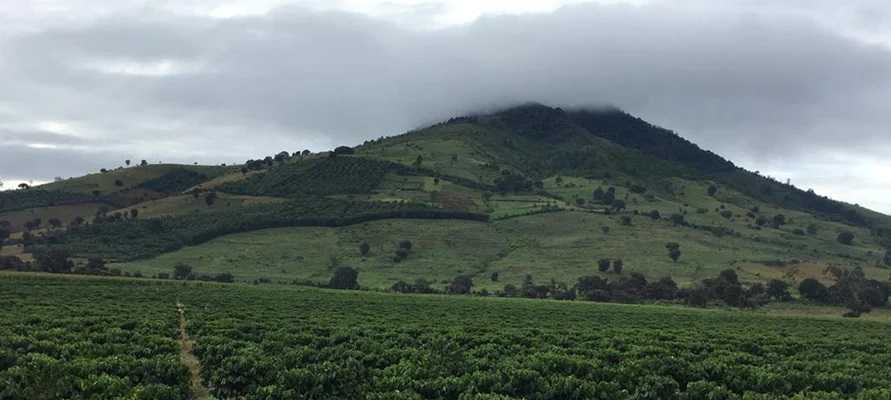TRIESTE, Italy – Creating economic, social, and environmental value for all stakeholders has been illycaffè ’s driving principle since the very start and has helped it develop a business model based on sustainable quality. The quality of illy coffee is a direct outcome of the close relationship between the company and the world’s best producers of Arabica coffee.
This sustainable value chain is based on a system of direct relationships with suppliers and rests upon four key pillars: selecting the best producers of Arabica coffee and working directly with them; transferring know-how to them and training them to achieve high-quality, environmentally sustainable production; rewarding them for high quality by paying them above-market prices; and creating a community of illy producers.
The production of coffee – the main source of revenue for over 25 million families in 50 countries – is now seriously threatened by global warming. According to estimates, a huge amount of the area currently used for growing coffee will no longer be suitable by 2050.
Decarbonization has now become an absolute priority, not just for coffee but for the entire agricultural sector, which is responsible for over 25% of greenhouse gas emissions. The drive for ever-greater yields typical of conventional agriculture has led to poorer soils and the loss of biodiversity.
This vicious cycle can be inverted and become virtuous through the development of a regenerative productive model that sequesters carbon from the air and regenerates the soil with organic matter, making it more fertile and boosting its natural defenses.
This is the experimental approach, based on the application of the regenerative agriculture of the ecosystem, that illycaffè is implementing in Guatemala and in Ethiopia, so as to turn it into a scalable model.
“If we move from a conventional agriculture model to a non-conventional, virtuous, and regenerative one, agriculture could even become carbon negative, sequestering carbon instead of emitting it – says Andrea Illy, chairman of illycaffè – The soil has three times the carbon absorption potential as that of the atmosphere while organic fertiliser feeds the soil’s microbiome, thus boosting the natural defenses of plants, makes soil more fertile and resilient to climate change, reducing its dependence on fertilisers and other chemicals. A healthier soil makes for healthier plants, and as a result, more healthful food for humans”.
In the zero-emission coffee plantations of Jardines de Babilonia in Guatemala and Kokkere, in Ethiopia’s Oromia region, illycaffè is applying the principles of regenerative agriculture. Thanks to the use of the farming best practices selected by illy’s agronomists, the ecosystem’s balance is restored by planting trees and protecting the soil, while also boosting biodiversity. By enriching the soil with organic matter, this model helps boost carbon efficiency. Added benefits include improved fertility, greater biodiversity, water conservation, and reduced dependence on fertilisers and pesticides.
In the Guatemala plantation – 140 hectares at an elevation of 1600 meters located between the lowlands and the slopes of the Jumai volcano in the department of Jalapa, illy will produce by 2023 the first idillyum carbon neutral coffee.
In the Kokkere plantation in the Oromia region, illycaffè and the coffee producer Ali Legesse have already put 100 out of the 360 available hectares under coffee cultivation. The regenerative agriculture techniques practiced in the plantation have also been transferred to the local population, which has been involved in the project from the onset, so that they can immediately put them into practice. At the same time, Legesse supplied 70,000 coffee plants to three new coffee farmer associations, who will grow them using the best available farming techniques to obtain a high-quality product. Kokkere, a rural area with a population of about 2,000 living in poverty, is already turning into a new coffee-growing area where small farmers will be able to sell their coffee to illy, joining its sustainable value chain. This will create added value in the local areas, providing jobs and incomes to local people, preventing migration to the cities or to other countries in search of a better life.
In Ethiopia, experimental farming is being carried out in collaboration with the Coffee Training Center Ethiopia, established thanks to a partnership between Associazione Italiana Cooperazione e Sviluppo Addis Abeba, UNIDO Addis Abeba, Fondazione Ernesto Illy, illycaffè and the Ethiopian Coffee and Tea Authority to promote the proper processing and exporting of coffee. In the future, this institute might expand its remit, and become a centre for disseminating know-how for small farmers.
The circularity of this model of regenerative agriculture, if adequately supported by the dissemination of knowledge, could become an example for all of Ethiopia, and be replicated on a large scale on the African continent.
“I am happy to share the first results of a project I believe in very much, and which represents a concrete solution for the entire world of coffee, on the world day dedicated to sustainability – comments Andrea Illy – we are aiming to become a carbon free company by 2033 and we want to achieve this in a circular manner, by sequestering carbon within our own value chain, eliminating emissions through the use of sustainable energy, and reducing the impact of every element in the productive style”.
















